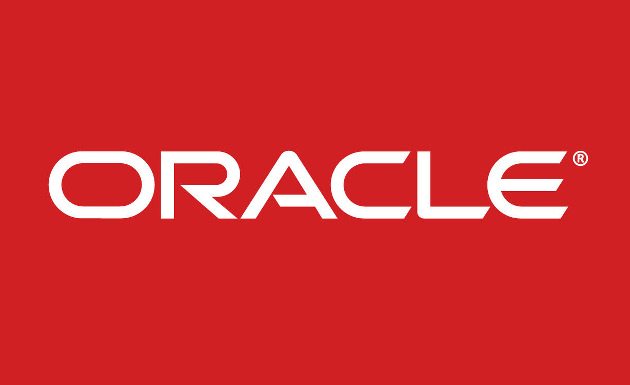
Rimini infringed Oracle’s copyright when testing and developing updates for Oracle’s software on behalf of the city of Flint, and the school district of Pittsburgh, a Nevada federal court found. The victory was only partial because only two of the four licenses reviewed were found to be infringed, at the summary judgment juncture. Whether the scopes of the other two licenses were exceeded, concerning Giant Cement and Novell, will be decided at trial sometimes in 2015.
Background
With regards to the city of Flint, and the Pittsburgh School District licenses, Rimini hosted copies of the software for the purpose of testing and developing software updates. Carefully crafted restrictions within the license agreements were instrumental to the court’s holding of infringement.
The licenses did not authorize third parties, such as Rimini, to make copies of the software for the purpose of hosting development environments. Yet this is exactly what the City of Flint and Pittsburgh Public School hired Rimini to do. From Rimini’s own facility, Rimini provided support related to Oracle software.
Nevertheless, the licenses allowed copying for archival and back-up purposes. That’s what Rimini was hired to do as far as Giant Cement and Novel were concerned. So as to them, Rimini’s activities were found non-infringing, at least at this stage of the proceeding.
Importantly, it is Rimini’s copies of Oracle copyrighted software that caused the problem with the first two licenses. Rimini hosted on its own systems the testing and developments for the City of Flint and Pittsburgh Public Schools, and made copies in the process. Had Rimini been able to develop and test remotely without hosting the software, and thus without making any copy, they would have been home safe. As it turns out, Rimini can do so and has been doing so for the last year. Rimini may lose this case but they are likely to come out of the litigation with a formula to apply to ensure compliance with copyright law. It now has the means to thrive.
I. The Restrictions Worked But Won’t Work Again
A. Oracle’s Incentive to Monopolize Support Services
One of the main reasons Oracle restricts third party uses is to safeguard its support service revenue streams. As Oracle affirms in its motion for summary judgment, “revenues for providing customer support and tax and regulatory updates for enterprise software accounts for a substantial portion of Oracle’s overall revenue.” That’s an understatement. Indeed, “software support margins during fiscal 2013 were 88% and accounted for 74% of our total margins over the same period,” Oracle said in its last annual report.
So it is very much in Oracle’s interest to draft licenses that make it very hard, if not impossible, for customers to turn to cheaper support service alternatives, such as Rimini’s. Hence, the various restrictions as to location, use, purpose, and authorized entities in the licenses, as outlined in more details below.
B. Antiquated Restrictions
These licenses were drafted a technological millennium away from current forms of Internet and cloud technologies. Due to the applicable restriction provisions, the copies of the software had to be maintained locally with the customers – not on Rimini’s company systems. Rimini did not do so. That is the essence and extent of Oracle’s big win.
This is an ephemeral victory. Going forward, these restrictions will not be much of an inconvenience to Rimini. This is so because copying the software locally is no longer a necessity to provide testing and development services. In the age of cloud computing and other Internet technologies, the restrictions have become outdated. They no longer restrict.
Paul Hamerman, analyst for Forrester Research, told CruxialCIO that “how software is deployed today is much different than when the Oracle suit was filed. Today, companies deploy software on-premise and in the cloud, so companies need to negotiate upfront how the software can be used in either location.”
The licenses at issue were drafted at a time that “pre-date the widescale adoption of hosted solutions, outsourcing and, of course, the rise of Internet based services” Diginomica’s Den Howlett points out.
C. Rimini Can And Does Operate Without Making Copies Of Copyrighted Software
Complying with copyright law in this context means that Oracle software are to be hosted exclusively on the clients’ premises, which Rimini can then access and use through cloud/Internet technologies, and provide its support services without ever having a copy of the software on its own systems. ((In fact, client-hosted option, aided by the advance of Internet and cloud tech, often is a better more cost-efficient solution. A statement from Rimini’s CEO, Seth Ravin, says as much. Mr. Ravin’s letter states, in relevant part: “In 2012, Rimini Street discontinued offering new clients the option of a Rimini-Hosted Environment, and only offered clients the Client-Hosted option. Rimini Street made this decision in order to achieve our next level of global infrastructure scaling, allowing Rimini Street to avoid the costs of extensive, costly global data center expansions to host a growing number of Rimini-Hosted Environments for clients. Mr. Ravin also said the Rimini hosted option for test environments, found liable of copyright infringement in the case, is no longer offered.)) Maintaining a copy of Oracle’s software within its systems being no longer needed, Rimini is home safe down the road.
Despite Oracle’s efforts to utilize copyright law to asphyxiate Rimini’s business model, Rimini’s maintenance and support services appear to have bright days ahead.
Next, for a more technical analysis of the decision, I dwell further into the language of the licenses.
II. Restrictions Language and Careful Usage of the Word “Copy”
Oracle’s win on two of the four licenses is predicated on the restrictions and precisions of the language used in the licenses.
A. The Use of Restrictions Policed Third Party Support Firms
For one, Oracle included various restrictions on location, use, purpose and authorized entities.
For example, section 1.1 of the City of Flint license grants the City of Flint a “license to use the licensed Software, solely for [the City of Flint’s] internal data processing operations at its facilities in the [United States].” Accordingly, the court held that this license provision expressly limits use of the software (1) to the City of Flint’s facilities – location restriction – and (2) for the City of Flint’s internal data processing operations – purpose restriction. Rimini failed on both counts and was therefore beyond the scope of the license.
Another example of restriction concerns the “who.” Many times throughout the decision the court noted that rights given under the license were granted solely to the licensee, not to third-parties. For instance, the court emphasized that “only the Pittsburgh Public Schools may make copies of the software” where
Oracle granted “[the Pittsburgh Public Schools] a nonexclusive, nontransferable license to make and run copies of the Software … for access by Employees and Designates on one or more servers and/or workstations located at facilities owned or leased by [the Pittsburgh Public Schools] …”
That too excluded Rimini and rendered its use of the software infringing of Oracle’s copyright.
Tackling Third Parties Use Head-On: Express Prohibition
Of course, the easiest way for licensor to limit third party uses is to expressly prohibit the same under the license. This kind of express ban was present in the license to the Pittsburgh Public Schools.
The license read “[i]n no event shall a Designate have the right to (i) install the Software on a server, workstation or other computer, (ii) access the source code for the Software; or (iii) undertake any of the actions listed in Section 2” (which includes copying the software), where Designate is defined as “[the Pittsburgh Public Schools’] customers, suppliers, vendors, benefits providers and other such external parties providing goods or services to [the Pittsburgh Public Schools] that [the Pittsburgh Public Schools] may provide with a right to access the Software consistent with the terms of this Agreement.”
Accordingly, the court was on firm footing to hold Rimini’s copying of Oracle’s software unauthorized.
B. Attentive Employ of the word “Copy”
The Oracle Licenses granted rights to make copies sparingly, granting copying rights only to licensee, and notably used the words “access” and “use” instead of the word “copy” whenever third parties were concerned.
For example, provision 14.2 in the City of Flint license states, in pertinent part: “[the City of Flint] may provide access to and use of the Software only to those third parties that: (i) provide services to [the City of Flint] concerning [the City of Flint’s] use of the Software; (ii) have a need to use and access the Software; and (iii) have agreed to substantially similar non-disclosure obligations … as those contained herein.”
Rightfully, the court’s analysis went as follows, “[t]he right to access and use the licensed software is separate from a right to reproduce or copy the software […] Further, unlike other license provisions, the word “copy” is not found anywhere in Section 14.2. Therefore, the court finds that the plain language of Section 14.2 does not authorize copying of the licensed software.”
Also note that 14.2(iii)(Third Parties must: “have agreed to substantially similar non-disclosure obligations … as those contained herein”) is an added restriction on third party support providers, which highlights just how important it for them to understand and comply with the terms of these licenses on a case-by-case basis so as to not fall outside their purviews.
Conclusion
Oracle v. Rimini is not over. A second motion for summary judgment is pending before the Nevada federal court regarding another Oracle software that Rimini admits copying. The decision will focus on whether Rimini is on the hook for licensing fees in connection with an Oracle database software that helps Rimini develop software updates for other Oracle software solutions.
Oracle USA, Inc. v Rimini St., Inc, 2014 WL 576097 (D. Nev. Feb. 13, 2014)


